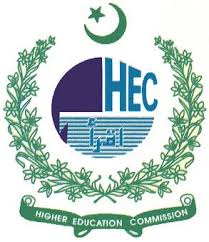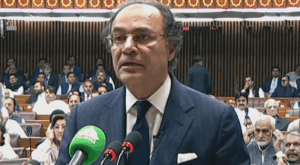
Tensions between the Chairman of the Higher Education Commission (HEC), Dr. Mukhtar Ahmed, and Executive Director Dr. Zia-ul-Qayyum have escalated significantly. With only three months remaining in the extended tenure of Chairman Dr. Mukhtar Ahmed, he has issued three explanation letters to Dr. Zia-ul-Qayyum.
Following these communications, a meeting of a four-member committee was convened on Monday to assess the Executive Director’s performance. The meeting, chaired by Dr. Mukhtar Ahmed himself, however, concluded without any decision, as no conclusive evidence could be presented against Dr. Zia-ul-Qayyum. It was decided that the committee would reconvene next week, during which the Chairman would present evidence to the committee members for further proceedings.
In response, Executive Director Dr. Zia-ul-Qayyum addressed a letter to the members of the Commission, requesting that the Chairman be barred from presiding over the committee. He argued that the actions initiated against him are rooted in bias and raise serious concerns. In the letter, Dr. Zia-ul-Qayyum stated that it appears the concerned authority has already formed an opinion, which inevitably casts doubt on the objectivity and fairness of the entire process.
He further pointed out that, under the current chairmanship, the office of the Executive Director has consistently been sidelined. Officers have reportedly been instructed to disregard the Commission Secretariat and instead engage in external communications only with the explicit approval and direction of the Chairman. Moreover, several administrative and financial decisions have been made—and continue to be made—without the involvement or confidence of the Executive Director’s office. According to Dr. Zia-ul-Qayyum, such practices not only violate governance protocols but also contravene the HEC Ordinance.
The letter emphasizes that allowing the Chairman to preside over the performance review committee constitutes a clear conflict of interest and raises legitimate concerns about the neutrality of the process. Dr. Zia-ul-Qayyum urged Commission members to independently review the matter and to provide him with a fair and fact-based opportunity to present his stance, backed by concrete evidence derived from official records.
In response to these developments, Chairman HEC Dr. Mukhtar Ahmed remarked that Dr. Zia-ul-Qayyum was appointed as Executive Director in a meeting that he himself had chaired—an arrangement to which Dr. Zia-ul-Qayyum had raised no objection at the time. Dr. Mukhtar further stated that the performance review meeting was a routine procedure that should have been conducted much earlier. However, the Executive Director delayed the submission of his report by three and a half months. By objecting to the Chairman’s role in chairing the committee meeting, Dr. Zia-ul-Qayyum is now attempting to create unnecessary controversy, Dr. Mukhtar alleged.
 BeNewz
BeNewz



